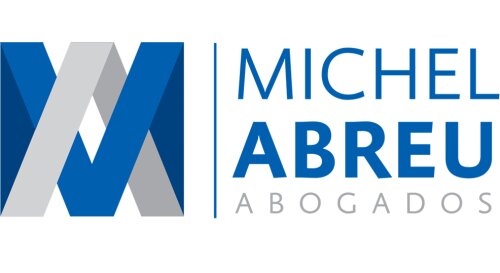Best New Business Formation Lawyers in Punta Cana
Share your needs with us, get contacted by law firms.
Free. Takes 2 min.
List of the best lawyers in Punta Cana, Dominican Republic
About New Business Formation Law in Punta Cana, Dominican Republic
New Business Formation in Punta Cana, Dominican Republic, is governed by a combination of local and national laws designed to promote entrepreneurship, attract foreign investment, and support economic growth. Punta Cana, known for its vibrant tourism industry, offers various opportunities for businesses to thrive. The process involves understanding the legal structures available, compliance with fiscal and labor regulations, and obtaining necessary permits and licenses. The legal framework encourages transparent operations and provides avenues for both domestic and foreign investors to establish and expand their business ventures.
Why You May Need a Lawyer
There are several reasons you might require legal assistance when forming a new business in Punta Cana. These include understanding the most suitable business structure to adopt (such as a sole proprietorship, partnership, or corporation), navigating the regulatory environment, ensuring compliance with local laws, and handling taxation issues. Additionally, a lawyer can assist in the preparation and review of necessary legal documents, guide you through the investment process, and help in resolving any disputes that may arise during the business formation phase.
Local Laws Overview
Key aspects of local laws in Punta Cana relevant to new business formation include:
Business Registration: All businesses must be legally registered to operate in the Dominican Republic. This typically involves registering with the Chamber of Commerce and obtaining a Tax Identification Number (RNC).
Foreign Investment Law: Punta Cana is open to foreign investors, and the Foreign Investment Law ensures equal treatment for foreign and local investors, encouraging capital inflows and technology transfer.
Labor Laws: Employment relationships are regulated to ensure fair wages, benefits, and working conditions. Understanding these laws is crucial for compliance when hiring employees.
Taxation: Businesses are required to comply with tax obligations, including income tax, value-added tax (VAT), and payroll taxes. Familiarity with the Dominican Tax Code is important for accurate financial planning.
Frequently Asked Questions
What types of business entities can I establish in Punta Cana?
You can establish several types of business entities, including a solo proprietorship, partnership, or corporation. Each has its own legal implications and requirements.
Do I need to be a resident of the Dominican Republic to start a business?
No, you do not need to be a resident. Foreigners can own and operate businesses in Punta Cana, though there may be additional steps required for foreign investors.
What are the initial steps to register a business?
The initial steps generally involve selecting a business structure, registering the company with the Chamber of Commerce, obtaining a RNC, and fulfilling any sector-specific licensing requirements.
How long does it take to register a business in Punta Cana?
The process usually takes a few weeks, depending on the complexity of your business and the completeness of your documentation.
What taxes will my business need to pay?
Your business will need to pay income tax, VAT, and possible other taxes such as property tax and payroll tax, depending on the nature of your business activities.
Is it necessary to hire a local lawyer?
While not mandatory, it is highly advisable to hire a local lawyer to navigate the legal requirements and ensure compliance with all applicable laws.
Are there any incentives for foreign investors?
Yes, the Dominican government offers various incentives, especially in the tourism, energy, and free trade zones sectors, to attract foreign investment.
What are the labor law requirements for hiring employees?
You must comply with minimum wage laws, work hours, job contracts, and social security contributions. A local lawyer can help ensure compliance.
Do I need a business license to operate?
Yes, a business license or permit is necessary, which varies depending on the industry and the specific business activities you intend to conduct.
What documentation is required to start a business?
You'll typically need identification documents, proof of address, financial statements, a business plan, and legal forms related to your business structure.
Additional Resources
For further assistance, you might consider reaching out to:
- The Chamber of Commerce and Production of Santo Domingo for business registration and support.
- The Dominican Republic Ministry of Industry and Commerce for understanding regulations and incentives.
- The Center for Export and Investment of the Dominican Republic (CEI-RD) for foreign investment opportunities and advice.
- Local business associations and networks, which can provide insights and support based on your business sector.
Next Steps
If you need legal assistance in forming a new business in Punta Cana, consider the following steps:
- Research local lawyers with expertise in business formation and choose one based on recommendations and credentials.
- Prepare a comprehensive business plan and gather necessary documentation before your consultation.
- Schedule a consultation to discuss your business goals, the legal requirements, and the steps involved in the business formation process.
- Follow the guidance of your legal advisor to ensure compliance with all local laws and regulations, and achieve a successful business launch.
Lawzana helps you find the best lawyers and law firms in Punta Cana through a curated and pre-screened list of qualified legal professionals. Our platform offers rankings and detailed profiles of attorneys and law firms, allowing you to compare based on practice areas, including New Business Formation, experience, and client feedback.
Each profile includes a description of the firm's areas of practice, client reviews, team members and partners, year of establishment, spoken languages, office locations, contact information, social media presence, and any published articles or resources. Most firms on our platform speak English and are experienced in both local and international legal matters.
Get a quote from top-rated law firms in Punta Cana, Dominican Republic — quickly, securely, and without unnecessary hassle.
Disclaimer:
The information provided on this page is for general informational purposes only and does not constitute legal advice. While we strive to ensure the accuracy and relevance of the content, legal information may change over time, and interpretations of the law can vary. You should always consult with a qualified legal professional for advice specific to your situation.
We disclaim all liability for actions taken or not taken based on the content of this page. If you believe any information is incorrect or outdated, please contact us, and we will review and update it where appropriate.










